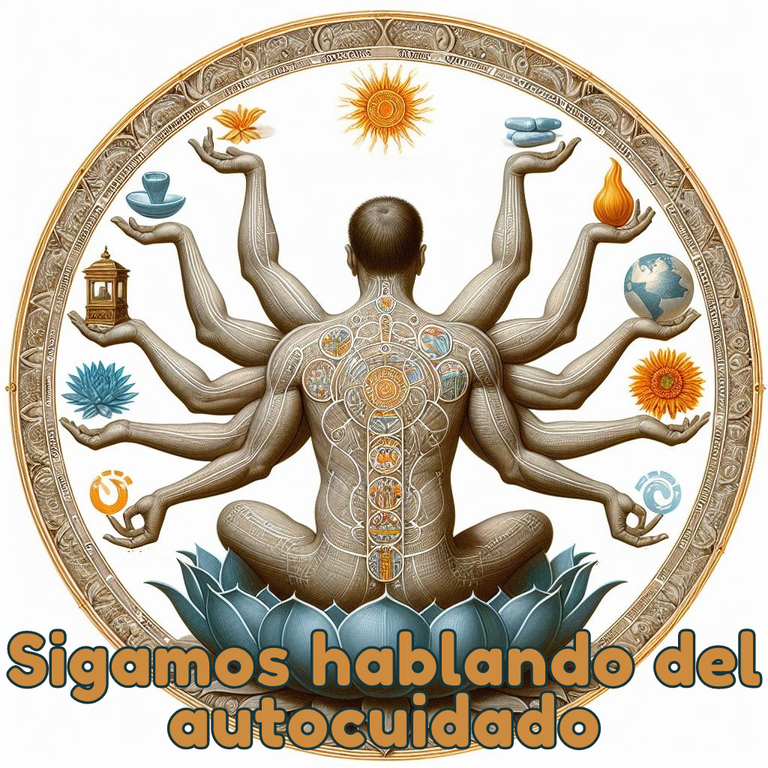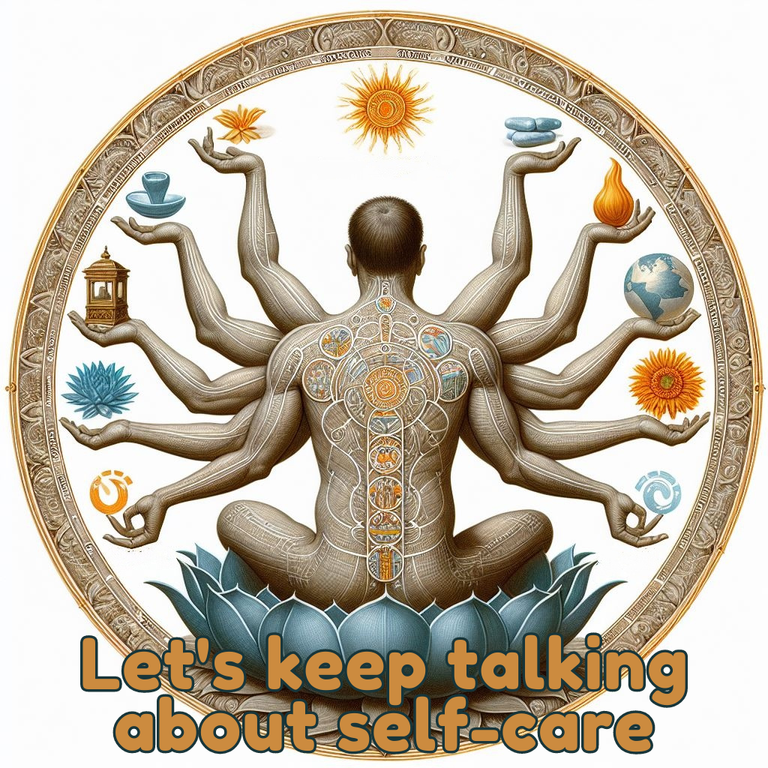
Nota: Si quieres leer sobre una perspectiva histórica y filosófica del autocuidado, te recomiendo que lo hagas aquí.
¿Qué entendemos por autocuidado? Este constructo es reconocido por diferentes nombres. Encontramos que es referido como capacidad de autocuidado, agencia de autocuidado, cuidado de sí mismo, autocuidado de la salud, entre otras, pero siempre abordando el mismo fenómeno desde diferentes perspectivas, adecuándose a los objetivos de cada contexto. Además, es un fenómeno transdisciplinar, ya que comprende una relación con otras disciplinas y categorías como son la Psicología Positiva, calidad de vida, percepción del estado de salud, entre otras.
Este concepto Orem; quien fuera la primera persona en acuñarlo, lo define como «la conducta aprendida por el individuo dirigida hacia sí mismo y el entorno para regular los factores que afectan su desarrollo en beneficio de la vida, salud y bienestar» (p.118). O sea, se trata de un repertorio de conductas dirigidas hacia el sí mismo y el entorno que lo circunda en tanto tienen un efecto beneficioso en el propio individuo, y que son producto de un aprendizaje social en dependencia del contexto y cultura.
Según varios autores, se trata de una serie de conductas, creencias, actitudes y estados emocionales que conforman un estilo de vida que manifiestan cómo las personas se relacionan con su entorno social mediante estrategias de afrontamiento en la cotidianidad. Esto a su vez tiene que ver con categorías psicológicas como el autoconcepto, la autoeficacia y el locus de control.
Se está hablando de un concepto que enmarca aquellas categorías que se refieren principalmente al sí mismo, y que manifiestan un modo de actuar saludable de relación con el entorno cotidiano en el que se desenvuelve la persona. Por tanto, dicho concepto engloba una perspectiva positiva, en tanto se enfoca en un mejor bienestar psicológico. En la teoría general de Orem, existe una demanda de autocuidado definida como la cantidad y el tipo de acciones que la persona debería llevar a cabo para poseer un adecuado autocuidado, y de no ser así, es que surge el déficit de autocuidado.

Estamos hablando de un conjunto de comportamientos que tienen por objetivo al sí mismo, o sea, que la propia persona es la meta de dichos comportamientos: el fin último y donde se vierten sus consecuencias. Estos se derivan de dos focos: el autoconocimiento, o sea, los procesos cognitivos acerca de la propia persona, y la autoacción, que no es más que las conductas que se revierten en el propio sujeto. Es un proceso que es autorregulado y autorregulador en el punto en que median procesos de toma de decisiones, y que consiste en un goce activo; que la persona sea capaz de autoprocurarse experiencias satisfactorias mediante conductas operantes que trabajan sobre sí y sobre el entorno, y que redundan a su vez en nuevas experiencias enriquecedoras, más allá de que sean positivas o negativas, satisfactorias o dolorosas; pues no se trata de eliminar estados de frustración o angustia.
Aquí se está hablando de un proceso que más allá de buscar la felicidad, lo cual no lleva a ningún lugar, es una capacidad de goce operante en tanto las conductas generadas por las personas, se reviertan en ellas mismas al final, cuando tengan por objeto al entorno o a ellas mismas. Por eso se dice que no se trata de eliminar los estados de angustia o frustración; la vida no es color rosa, sobre todo porque dichos estados a pesar de ser displacenteros, pueden muchas veces ser generadores o potenciadores de crecimiento personal, y de eso es de lo que se habla; ahí estarían operando las conductas de autocuidado.
English version

Note: If you want to read about a historical and philosophical perspective on self-care, I recommend you do so here.
What do we mean by self-care? This construct is recognized by different names. We find that it is referred to as self-care capacity, self-care agency, self-care, self-care of health, among others, but always approaching the same phenomenon from different perspectives, adapting to the objectives of each context. In addition, it is a transdisciplinary phenomenon, since it includes a relationship with other disciplines and categories such as Positive Psychology, quality of life, perception of health status, among others.
Orem, who was the first person to coin it, defines this concept as "the behavior learned by the individual directed towards himself and the environment to regulate the factors that affect his development for the benefit of life, health and well-being" (p.118). In other words, it is a repertoire of behaviors directed towards oneself and the surrounding environment insofar as they have a beneficial effect on the individual, and are the product of social learning depending on the context and culture.
According to several authors, it is a series of behaviors, beliefs, attitudes and emotional states that make up a lifestyle that show how people relate to their social environment through coping strategies in everyday life. This in turn is related to psychological categories such as self-concept, self-efficacy and locus of control.
We are talking about a concept that frames those categories that refer mainly to the self, and that manifest a healthy way of acting in relation to the daily environment in which the person develops. Therefore, this concept encompasses a positive perspective, as it focuses on improved psychological well-being. In Orem's general theory, there is a self-care demand defined as the amount and type of actions that the person should carry out in order to have adequate self-care, and if this is not the case, the self-care deficit arises.
We are talking about a set of behaviors that are aimed at the self, that is, the person himself is the goal of these behaviors: the ultimate goal and where their consequences are poured. These derive from two foci: self-knowledge, that is, the cognitive processes about the self, and self-action, which is nothing more than the behaviors that revert to the subject himself. It is a process that is self-regulated and self-regulating to the extent that it involves decision-making processes, and that consists of active enjoyment; that the person is capable of self-procuring satisfactory experiences through operant behaviors that work on himself and on the environment, and that result in turn in new enriching experiences, regardless of whether they are positive or negative, satisfactory or painful; for it is not a question of eliminating states of frustration or anguish.

Here we are talking about a process that goes beyond the search for happiness, which does not lead anywhere, it is an operative capacity of enjoyment as long as the behaviors generated by people, revert in themselves in the end, when they have as an object the environment or themselves. That is why it is said that it is not a matter of eliminating states of anguish or frustration; life is not rosy, especially because such states, despite being unpleasant, can often be generators or enhancers of personal growth, and that is what we are talking about; that is where self-care behaviors would be operating.
It can be said that the theory proposed by Dorothea Orem, given the clarity of the concepts and the breadth of its application, is extensible in different areas of professional performance, as well as different population groups. This allows it to be used even in everyday life, in conditions of non-incapacity, of non-disease, as a means to promote health and to ensure active self-enjoyment.

Créditos | Credits
Bibliografía consultada | References consulted
Alarcó, G. (2018). Autocuidado en mujeres de mediana edad con obesidad [tesis de licenciatura, Universidad de La Habana]. Repositorio Institucional de tesis de la UH. http://www.scriptorium.uh.cu
Cancio-Bello, C. (2018). Programa psicoeducativo de autocuidado para mujeres con cáncer de mama en intervalo libre de enfermedad [tesis de maestría, Universidad de La Habana]. Repositorio Institucional UH. http://www.scriptorium.uh.cu
Orem, D. (1980). Enfermería: conceptos de práctica (2da. ed.). McGraw Hill.
Lange, I., Urrutia, M., Campos, C., Gallegos, E., Herrera, L., Jaimovich, S., . . . Fonseca, I. (2006). Fortalecimiento del autocuidado como estartegia de la Atención Primaria en Salud: La contribución de las instituciones de salud en América Latina. (Área de Tecnología y Prestación de Servicios de Salud). Organización Panamericana de la Salud. http://shrtco.de/bDt29
López, A., y Guerrero, S. (2006). Perspectiva internacional del uso de la teoría general de Orem. Revista Investigación y Educación en Enfermería. 24(2), 90-100. http://www.redalyc.org/articulo.oa?id=105215402009
Fierro, A. (2000). El cuidado de sí mismo y la personalidad sana. Revista de la Asociación Española de Neuropsiquiatría. 20(76), 35-47. http://dx.doi.org/10.4321/S0211-57352000000400003
Prado, L., Gonzáles, M., Paz, N., y Romero, K. (2014). La teoría Déficit de autocuidado: Dorothea Orem punto de partida para la calidad en la atención. 36(6). http://shrtco.de/Wljo3
Russell, B. (2019). La conquista de la felicidad (J. M. Ibeas, trad.). Biblioteca Omegalfa. (Original publicado en 1930). http://shrtco.de/pKuLU
Imágenes utilizadas | Images used
Todas las imágenes utilizadas son de mi propiedad y fueron generadas utilizando Copilot de Bing y editadas en Canva | All images used are my own property and were generated using Copilot from Bing and were edited using Canva.
Traducción | Translation
Te puede interesar | You may be interested in
¿Las media naranjas ruedan? | Does half oranges roll? [ES/EN]
¿Conoces el «porno» de productividad? | Do you know about productivity "porn"? [ES/EN]
Juventud conectada: forjando identidades | Connected youth: forging identities [ES/EN]
Año nuevo, mismas frustraciones | New year, same frustrations. [ES/EN]
Sígueme en mis redes sociales | Follow me on my social media platforms
|X|
|LinkedIn|
👏🏻👏🏻👏🏻 importante tema
El autocuidado nos da las herramient para afrontar la vida por raro que suene, es un proceso largo doloroso y permanente, una lucha dia a dia.
Me gustó como abordaste el tema esta genial.
Muchas gracias por leer y por su devolución. Me satisface que le haya gustado. El autocuidado es precisamente eso, el día a día y no una meta que alcanzar.